What powertrains will be available with the all-new Kia Tasman?
Whereas the exterior intention of the Kia Tasman has dominated indispensable of the on-line reaction since the highly anticipated ute used to be unveiled final week, the powertrains – or powertrain – has been the next-freshest topic.
Launched exclusively with 2.2-litre turbo-diesel energy, indispensable of the most up-to-date speculation about the auto has targeted on what may maybe maybe maybe lie forward for the Tasman in phrases of more-highly efficient petrol variants, to boot to hybrid and electrical alternatives.
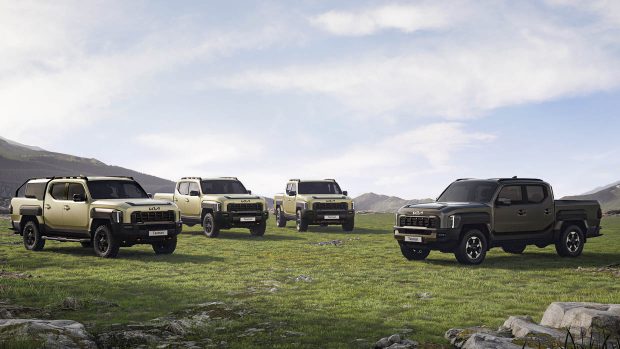
Let’s take a leer at what’s confirmed, what’s been hypothesised, and what we’re looking out forward to to leer down the observe.
Four-cylinder turbo-diesel ideal at originate
The only real real powertrain option on hand at originate in Australia will likely be Kia’s acquainted 2.2-litre turbo-diesel inline-four cylinder engine that’s also speak in other fashions such because the Sorrento gargantuan SUV and Carnival of us mover.
This engine produces 154kW of energy and 441Nm of torque, which works key rivals such because the Ford Ranger for energy however no longer torque – that mannequin aspects a 2.0-litre twin-turbo diesel four cylinder outputting 154kW/500Nm.
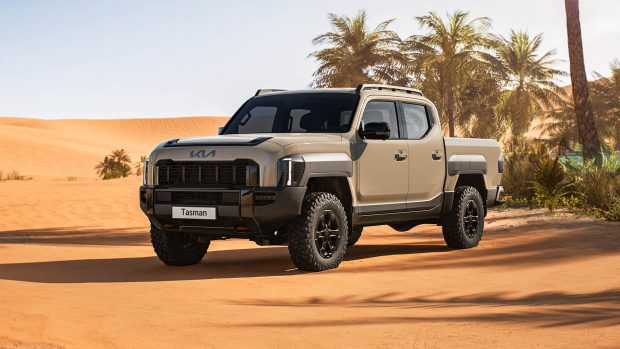
Within the Kia, the powertrain is mated to an eight-skedaddle computerized transmission exclusively – no handbook is obtainable – and Kia claims that it may maybe maybe maybe skedaddle from 0-100km/h in 10.4 seconds and mumble a maximum skedaddle of 185km/h.
Turbo-petrol on hand overseas
In Korea, the Tasman will likely be on hand with a 2.5-litre inline-four cylinder turbo-petrol engine, also mated to an eight-skedaddle computerized transmission.
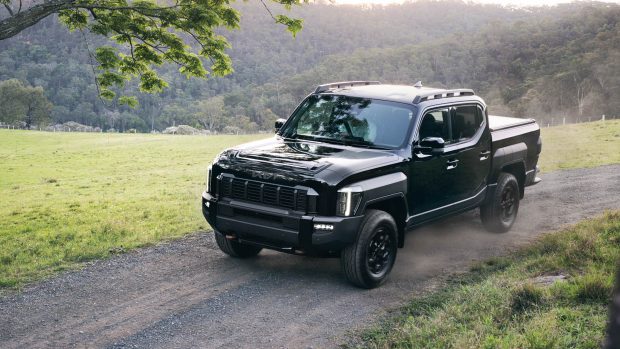
The turbo-petrol engine delivers more energy (206kW) and no more torque (421Nm), yielding a sooner 0-100km/h acceleration deliver of 8.5 seconds; high skedaddle is unchanged at 185km/h.
Heart Eastern and African markets will likely be in a position to make a option from each the turbo-diesel and turbo-petrol fours, on the opposite hand the 2.5-litre isn’t slated for Australia.
Can we inquire of of a petroleum V6?
The prolonged pre-originate hype-put collectively for the Tasman saw indispensable speculation a pair of doable excessive-efficiency variant, potentially utilising the twin-turbo V6 speak in vehicles such because the Kia Stinger and plenty of alternative Genesis fashions.
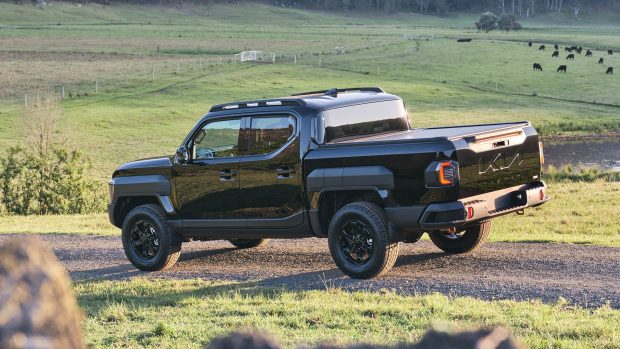
That 3.3-litre engine makes for energy outputs of 274kW/510Nm, which may maybe maybe maybe give replacement for greater-energy mainline variants.
On the opposite hand, this looks no longer going, no no longer up to for now, primarily as a consequence of the upcoming Unusual Vehicle Effectivity Approved in Australia.
What a pair of excessive-efficiency Raptor rival?
Speaking to Chasing Autos publish originate of the Tasman final week, Kia Australia’s overall manager of product planning Roland Rivero acknowledged: “I perceive the halo accept as true with of a Raptor-delight in car, however we’ve got to be acutely aware of what’s coming”.
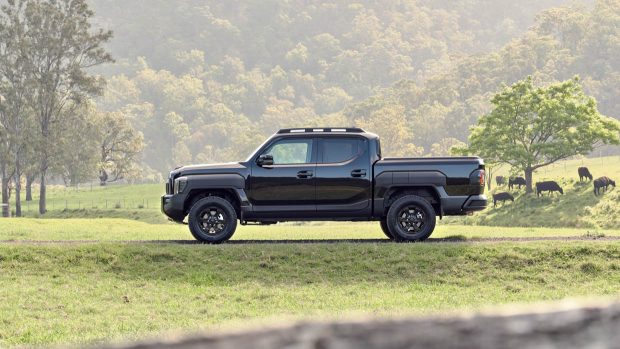
“CO2 regulations will likely be right here and if one thing we’re taking a leer at that V6 petrol that’s at speak being passe in our other car traces, whether their respective mixes and roles are going to begin to shrink, on epic of whether we delight in it or no longer, the regulations is right here, it’s coming and the penalties are excessive”.
Rivero added that six-cylinder vehicles fabricate up no longer up to 20 p.c of sales within the ute segment, and that the emblem is “focused on the 80 [percent]” of the ute market made up by four-cylinder sales.
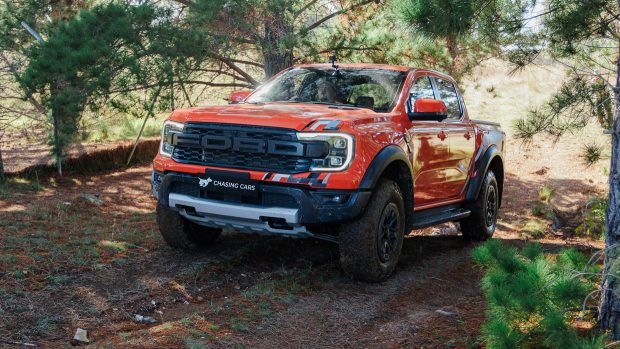
Whereas a future mud-kicking V6 Tasman appears to be like “highly no longer going”, it wasn’t ruled out completely, with Rivero also telling media on the Tasman’s originate final week: “we accept as true with accept as true with a prolonged product cycle and you by no formulation know”, Rivero acknowledged.
What about hybrid and electrical energy?
In discussing doable for a V6 petrol Tasman, it grew to change into obvious that an electrified Tasman option would be more likely in light of the fresh efficiency regulations.

Rivero told media final week that the emblem is “taking a leer at powertrain alternatives within the prolonged speed that will serve [them] navigate via NVES”, and has also previously told Chasing Autos that electrification used to be “surely on the playing cards [for Tasman]”.
Undoubtedly, having developed an all-fresh platform for the Tasman provides it a obvious income in incorporating electrified powertrains and it’d be no longer going for Kia to no longer accept as true with developed the platform without ‘future-proofing’ it for electrification.
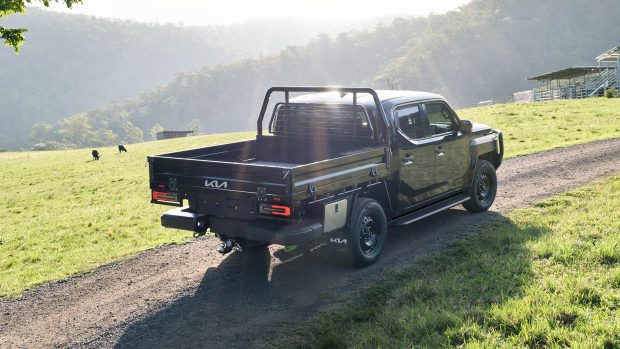
On the opposite hand, talking to Chasing Autos publish-originate final week, Rivero also added that whereas electrified alternatives are more likely “down the street” in contrast to a V6, they would have to be added to the lineup “without compromising the issues that customers need and wish”.
“For instance, if it came with the expense of a 3.5 tonne towing skill then we’d have to leer at it in slightly of part”, Rivero acknowledged.
“Nonetheless on the opposite hand, maybe the buyer, the rapidly buyer of the prolonged speed will begin to alter their needs.
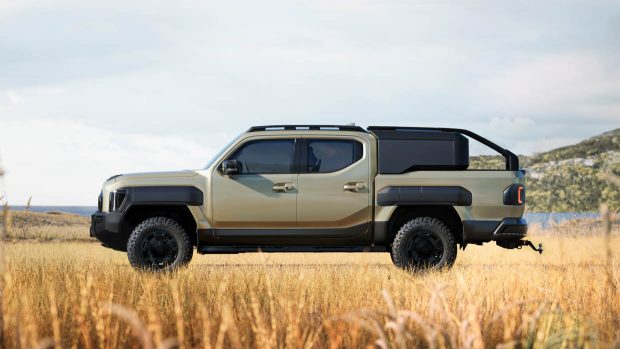
“They’re also focused on a greener, smaller carbon footprint also, so maybe needs and wants will replace and we’ve got to evolve and hump with it. The market will within the waste dictate”.
More electrified ute alternatives are now starting up to emerge available within the market.
Final week, BYD announced pricing for its Shark 6 ute, the first trot-in hybrid electrical ute to originate in Australia – priced at $57,900 and handing over whole outputs of 321kW/650Nm – and beating the upcoming Ford Ranger PHEV to market.
Source credit : chasingcars.com.au

